Are you contemplating a career change and thinking about how to express your decision? Writing a resignation letter can be a pivotal moment in your professional journey, especially when you want to focus on future goals. It's not just about informing your employer; it's an opportunity to reflect on your aspirations and maintain a positive relationship. If you're curious about how to craft the perfect resignation letter that highlights your ambitions, keep reading to explore our comprehensive template!

Subject Line: Concise and Professional
Subject Line: Notice of Resignation Driven by aspirations for personal and professional development, I am respectfully announcing my resignation from my position at [Company Name], effective [Last Working Day, typically two weeks from the date of the letter]. My journey here, particularly in my role as [Your Job Title], has been enriching, filled with valuable experiences and collaborations with a dedicated team. Looking ahead, I am eager to pursue new opportunities that align with my long-term goals in [specific field or industry]. I sincerely appreciate the support and mentorship I have received during my tenure, especially from [mention any specific individuals or teams]. I remain committed to ensuring a seamless transition before my departure, and I look forward to staying connected in the future. Thank you for everything.
Introduction: Gratitude for Opportunities
Expressing gratitude for the valuable opportunities gained during tenure at the organization can enhance professional relationships. Recognizing key projects, such as the successful implementation of the quarterly sales strategy, highlights personal growth. Collaborating with talented colleagues from diverse departments has fostered invaluable skills in communication and teamwork. The experiences gained have significantly shaped future aspirations, focusing on pursuing leadership roles in innovative companies within the technology sector. Emphasizing the importance of continued personal development within dynamic environments is essential for future career progression.
Reason for Resignation: Future Goals and Aspirations
The decision to resign from a current position is often influenced by the pursuit of future goals and aspirations. Individuals may seek new opportunities that align better with their long-term career ambitions. For instance, a professional aiming to transition from a role in sales at a mid-sized technology firm to a leadership position within a multinational corporation may find that advancing their skill set through further education or specialized training is essential. This strategic move could involve enrolling in management courses to enhance leadership capabilities, networking with industry leaders at conferences, or seeking mentorship from experienced executives. The goal is to secure roles that not only fulfill immediate career desires but also contribute to long-term professional growth, paving the way for fulfilling and impactful contributions within the chosen field.
Offer Assistance in Transition: Ensuring Smooth Handover
In today's dynamic corporate landscape, professionals often seek to align their career trajectories with future goals and personal aspirations. Crafting a resignation letter serves as a formal declaration of intent to transition from current employment, often highlighting opportunities for growth and the pursuit of new ambitions. While emphasizing future goals, it remains essential to express gratitude for past experiences and teamwork. Offering assistance during the transition period demonstrates professionalism and ensures a smoother handover of responsibilities. This approach fosters positive relationships, potentially paving the way for future collaborations or networking opportunities in one's career journey.
Closing Remarks: Positive Outlook and Best Wishes
Substantial career transitions often bring a mix of emotions. A well-calibrated resignation letter can outline future ambitions while maintaining positive relationships with colleagues and superiors. Companies, such as Fortune 500 firms or innovative startups, appreciate professionalism upon departure. Most importantly, articulating appreciation for past opportunities in a heartfelt manner fosters goodwill. Highlighting personal aspirations, like pursuing advanced education or taking up leadership roles in sustainable projects, showcases a commitment to growth. Closing remarks should convey optimism for future endeavors, underscoring an intent to stay connected and wishing colleagues continued success. Such thoughtful communication often leads to lasting professional networks.
Letter Template For Resignation With Focus On Future Goals Samples
Letter template of resignation discussing passion for a different industry.
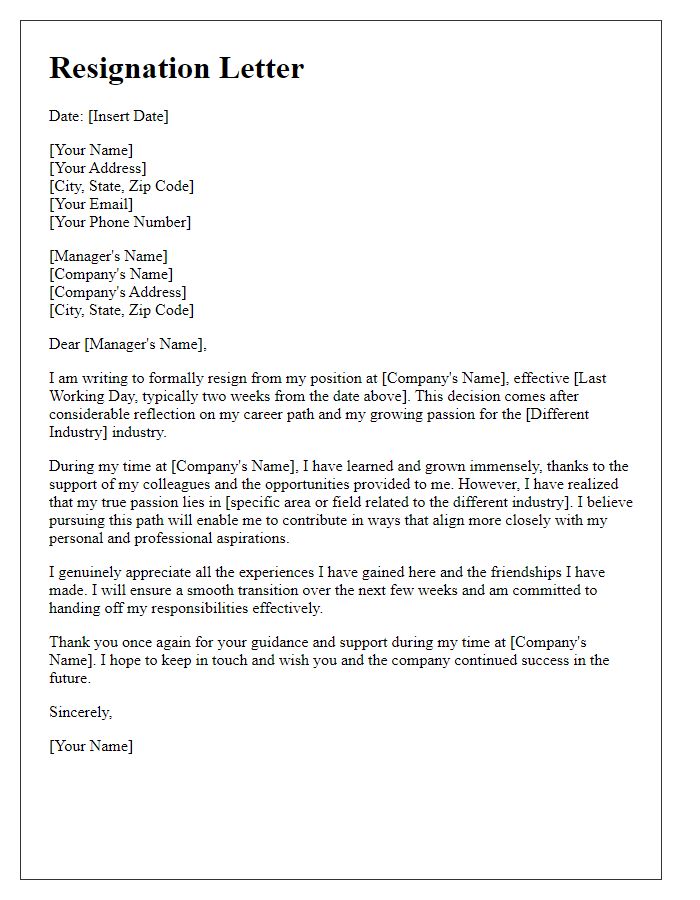
Letter template of resignation reflecting on long-term professional objectives.
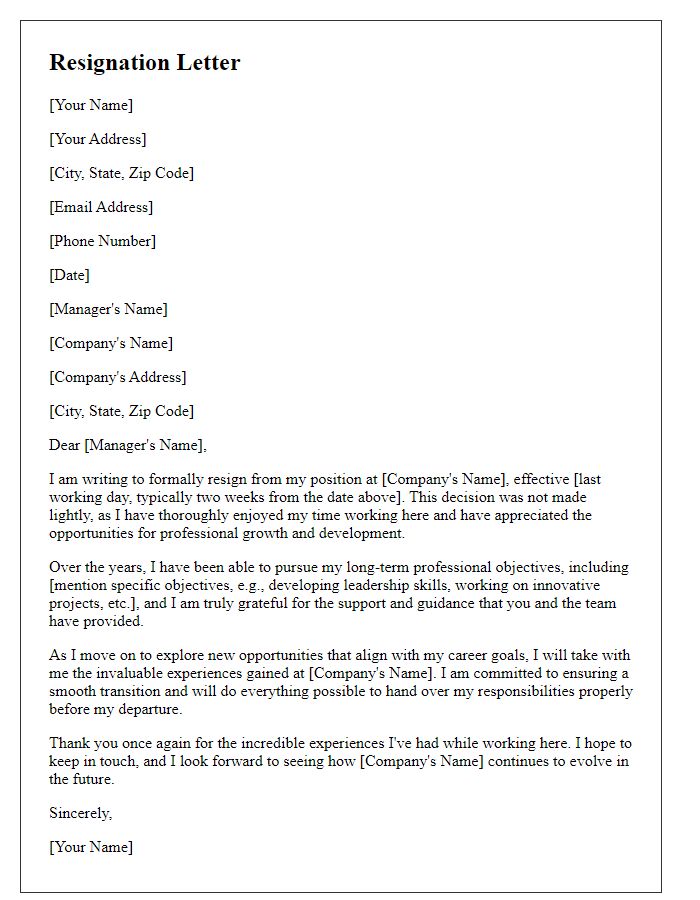
Letter template of resignation expressing interest in entrepreneurial ventures.
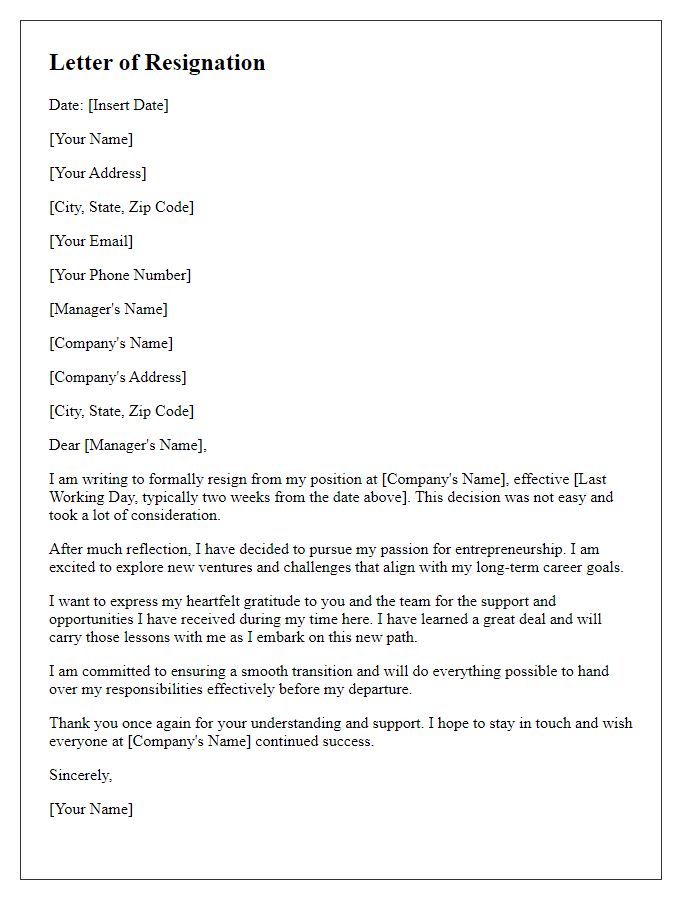
Letter template of resignation underscoring commitment to self-improvement.
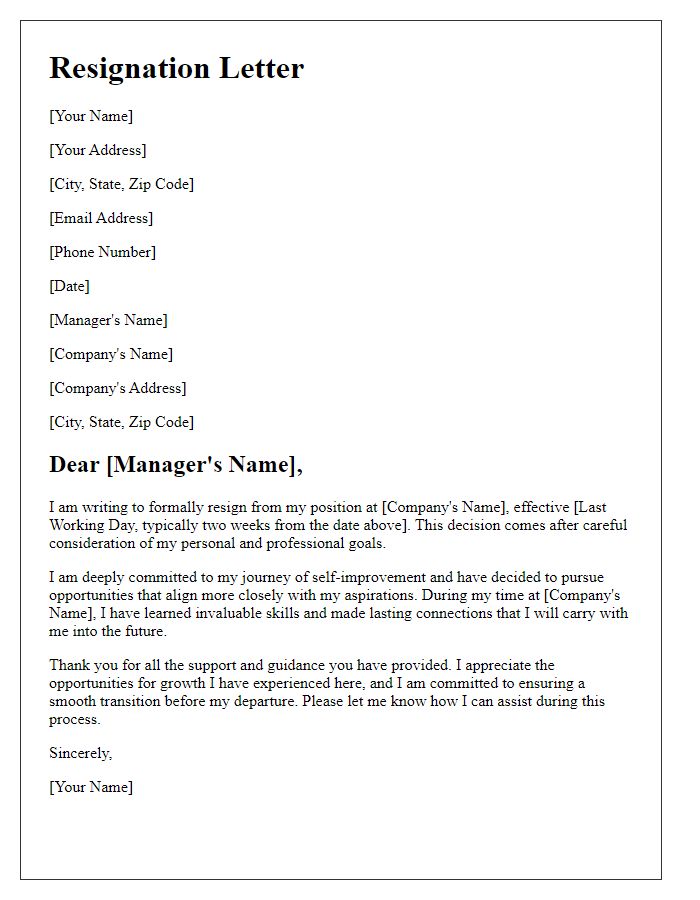

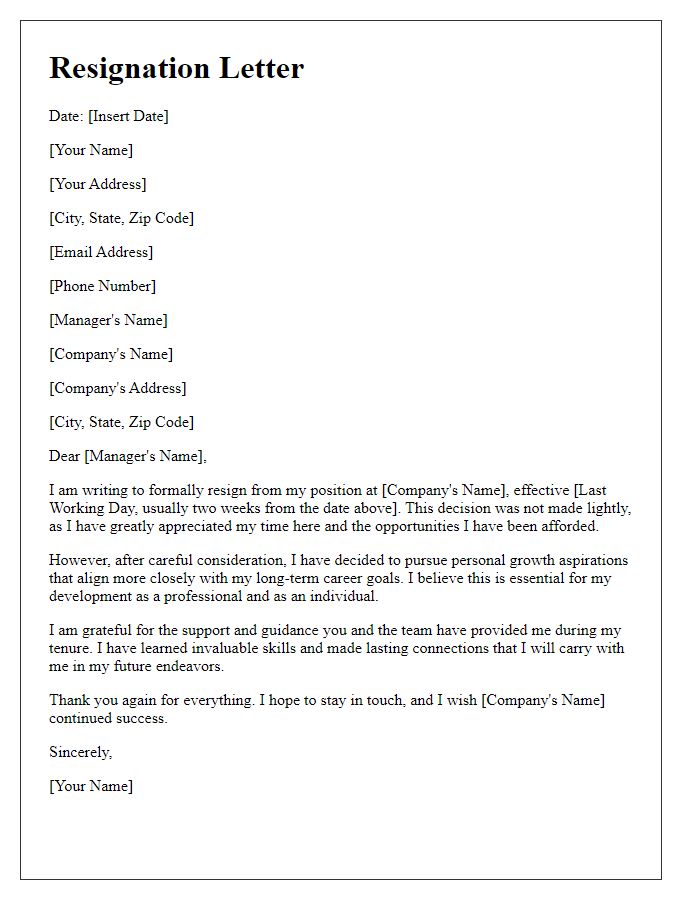
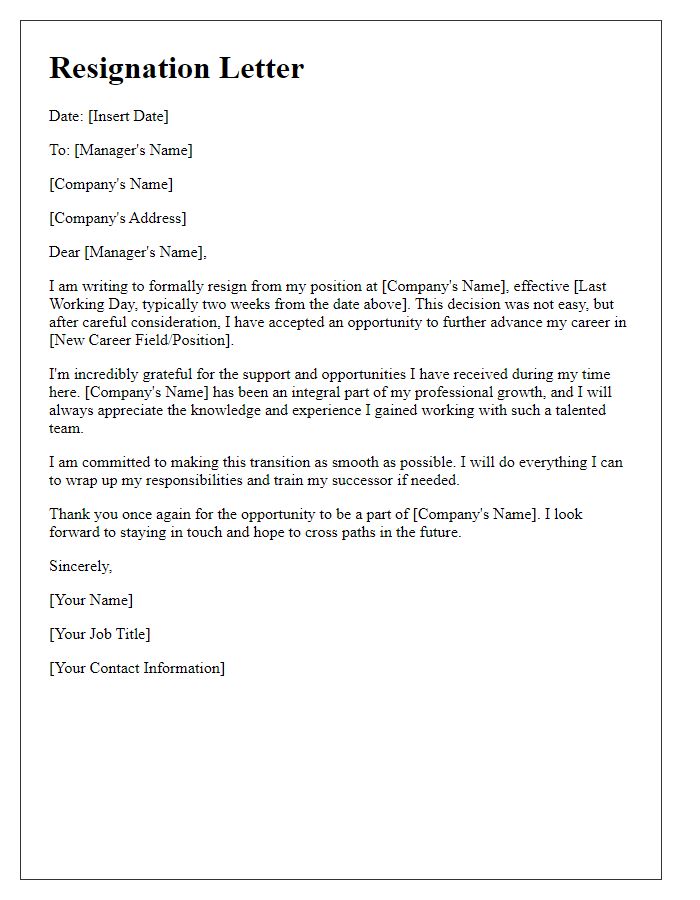
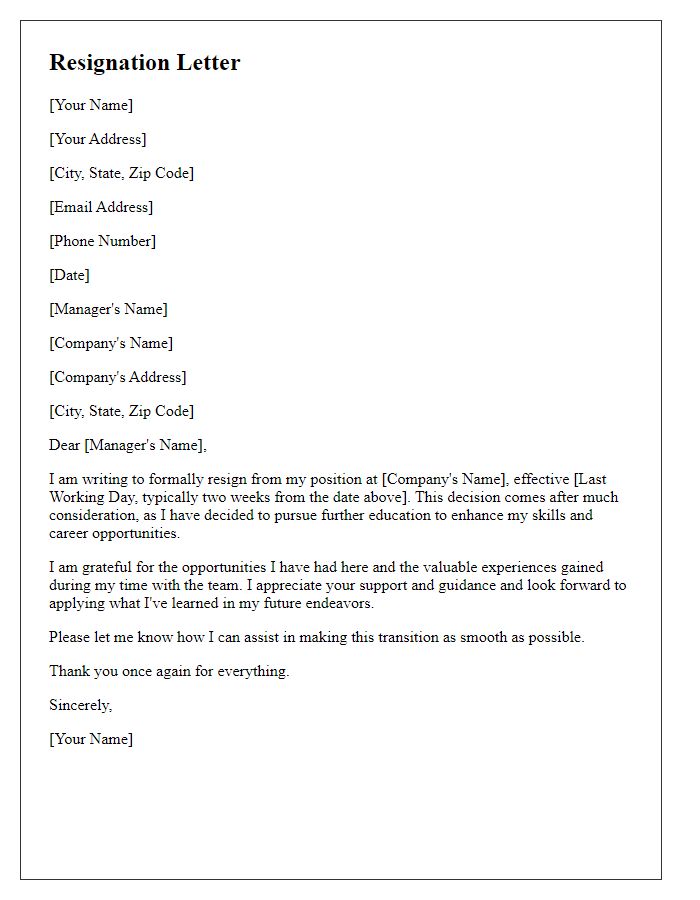
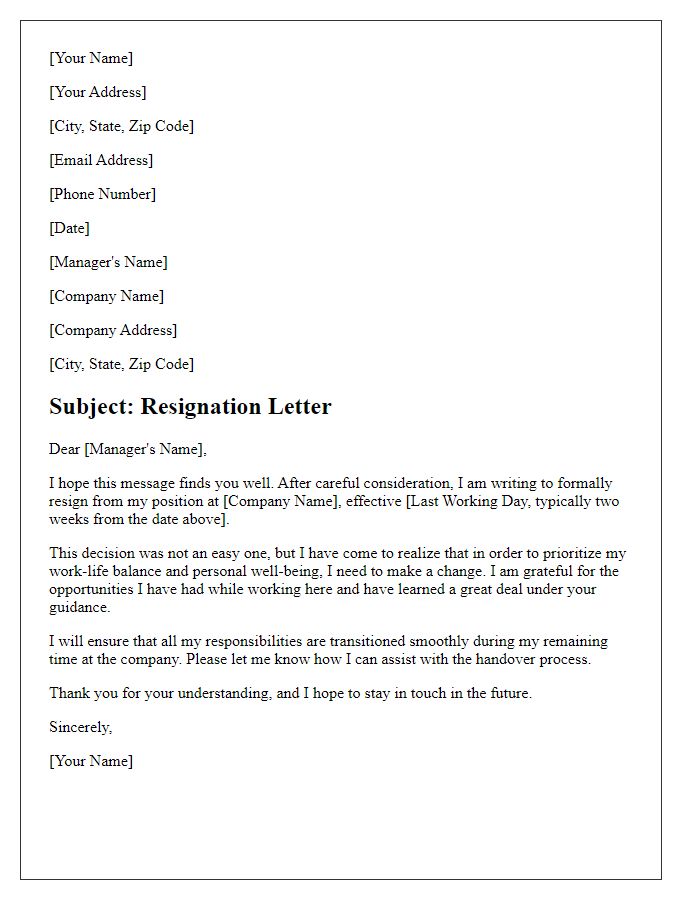
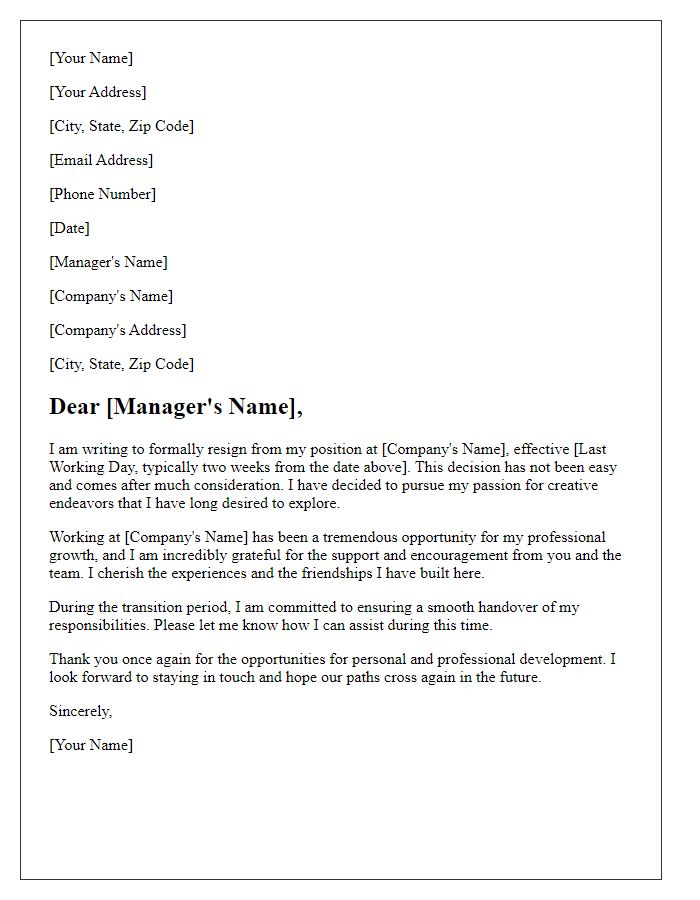
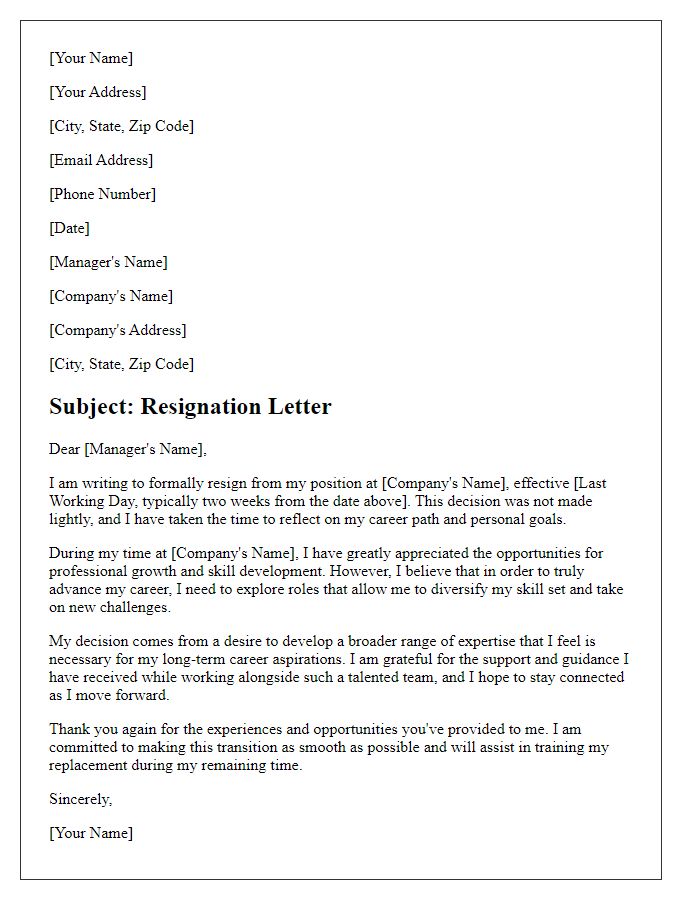


Comments